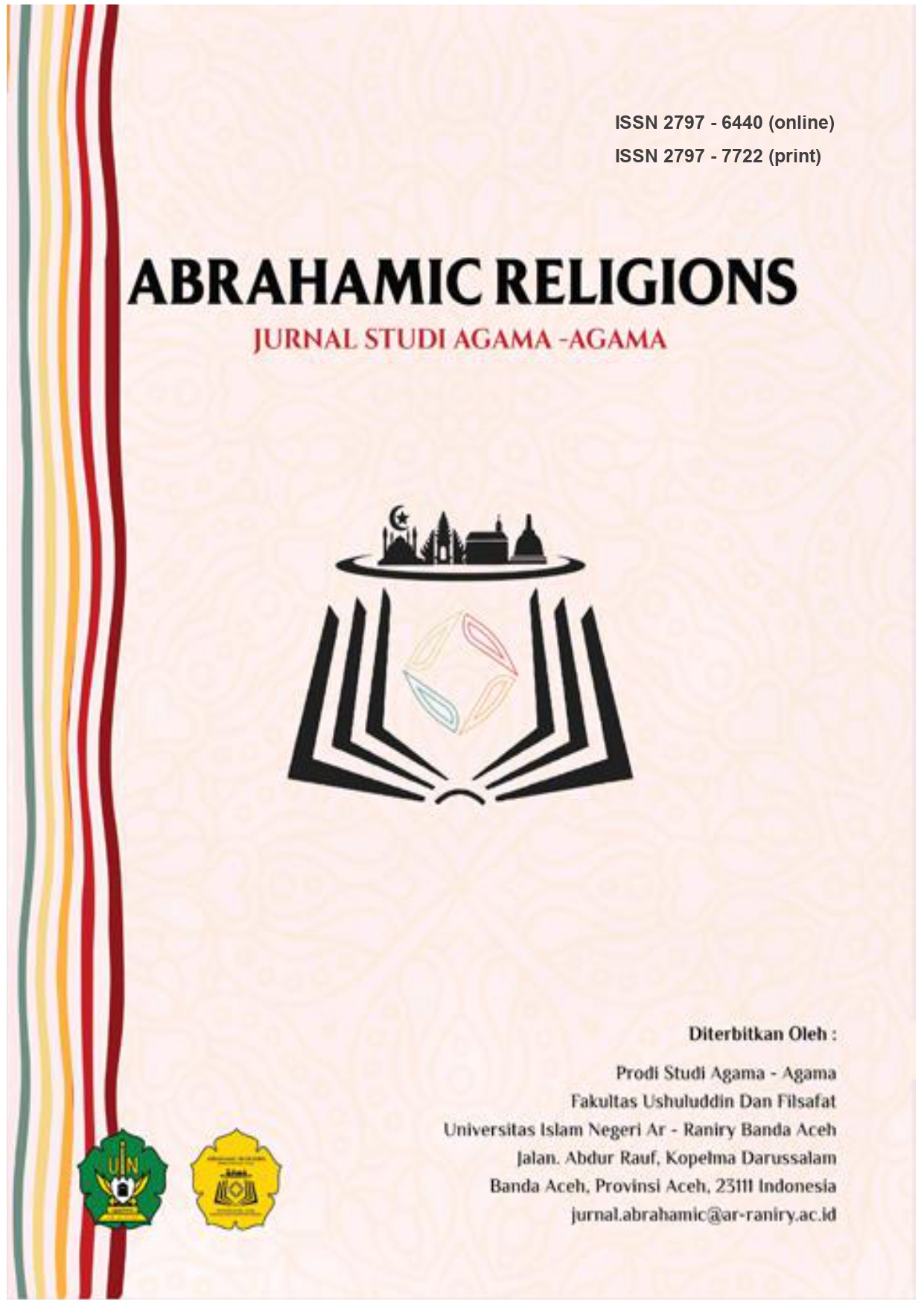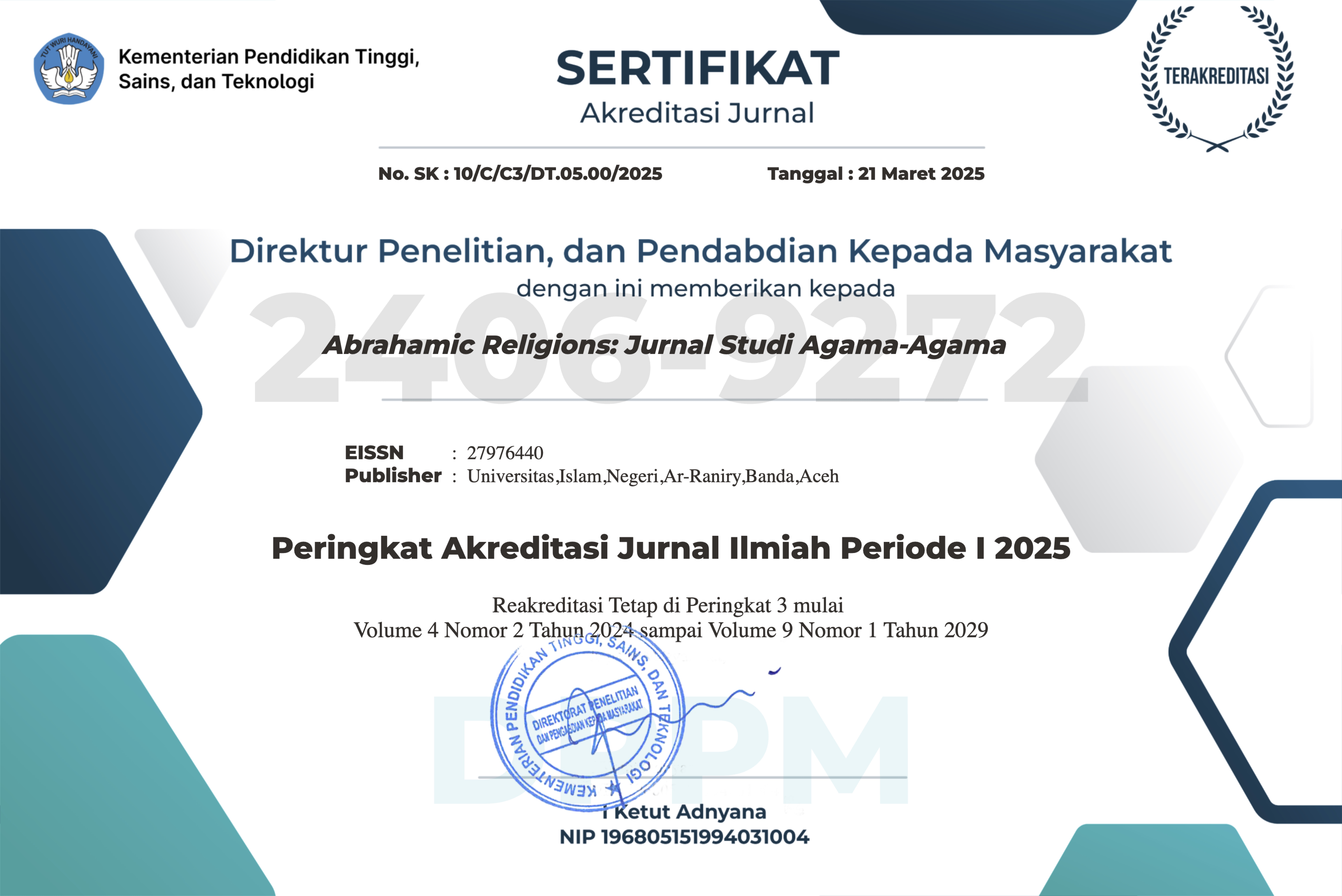MENGKRITISI TRADISI BERBAGI DALAM UPACARA ADAT NGGUA LIO-ENDE FLORES NTT DALAM TERANG TEOLOGI PEMBEBASAN GEREJA KATOLIK
DOI:
https://doi.org/10.22373/arj.v2i1.12218Keywords:
kemiskinan, Lio-Ende, teologi pembebasan, upacara adat NgguaAbstract
The focus of the discussion in this study lies in the critical dimension of the 'sharing' tradition in the Nggua traditional ceremony of the Lio-Ende Flores tribe. The tradition of 'sharing' in the traditional Nggua ceremony is a form of gratitude as well as an opportunity to help each other. Reality shows that this tradition has created poverty for the Lio-Ende tribal community because the local community is forced to carry out the Nggua ceremony even though they are economically unable. Therefore, this study aims to provide a philosophical understanding to the Lio-Ende community about the meaning of the Nggua ceremony as a harvest thanksgiving ceremony in the light of the liberation theology of the Catholic Church. This effort is expected to have a significant impact on changing the perspective of the local community in understanding Nggua traditional ceremonies. The research methodology was used in the form of qualitative data collection through interviews. Interviews were conducted by telephone or video call. This study finds that the Lio-Ende community is trapped in a wrong perspective on the meaning and message of the Nggua adat. This way of thinking has made their lives trapped in poverty because of the wrong meaning of culture. This happens because of the shallow meaning of the message conveyed in the Nggua traditional ceremony. In this situation, the Church is present as the party proclaiming liberation so that they can interpret the Nggua ceremony as a celebration of thanksgiving for the harvest.
References
Adon, M. J. (2016). Belas Kasih Allah Menurut Henri J.M. Nouwen. Forum: Jurnal Filsafat Dan Teologi, XLV(01), 27–36.
Arndt, P. (2002). Du’a Ngga’e Wujud Tertinggi dan Upacara Keagamaan di Wilayah Lio (Flores Tengah). Candraditya.
Gutierrez, G. (1973). A Theology of Liberation (XXI). Orbis Books.
Iki, A. (2021). Wawancara Tentang Nggua.
Keriapy, F. (2017). Kearifan Lokal Sebagai Jembatan Berteologi dan Berbudaya Frets. Jurnal Teologi Siap.
Lai, V., Samdirgawijaya, W., & Devung, G. S. (2019). Makna Simbol Benda Dalam Upacara Pemakaman Menurut Dayak Bahau Umaaq Luhat dan Gereja Katolik. GAUDIUMVESTRUM: Jurnal Kateketik Pastoral, 3(1), 1–13.
Martasudjita, E. P. D. (2005). Inkulturasi Gereja Katolik di Indonesia: Problematik, Pengertian, dan Teologi Inkulturasi. Studia Philosophica et Theologica, 5(2), 136.
Mbete, A. M. (2008). Nggua Bapu: Ritual Perladangan Etnik Lio-Ende. Pustaka Larasan.
Meha, S. K. (2015). Pandangan Jemaat GMIT Syaloom Ende Terhadap Tradisi Kuwi Roe pada Suku Lio , di Kabupaten Ende – Flores Tengah – NTT. Universitas Kristen Setia Wacana.
Ngabalin, M. (2017). Teologi Pembebasan Menurut Gustavo Gutierrez Dan Implikasinya Bagi Persoalan Kemiskinan. KENOSIS: Jurnal Kajian Teologi, 3(2), 129–147. https://doi.org/10.37196/kenosis.v3i2.10
Paembonan, Y. M. (2019). Memahami Tantangan Teologi Pluralisme dan Teologi Pembebasan. 2(1), 48–59.
Paus Yohanes Paulus II. (1980). Dives In Misericordia Kaya dalam Kerahiman. In F.X. Adisusanto SJ & B. H. T. Prasasti (Eds.), Ensiklik (99th ed.). Depertemen Dokumentasi Dan Penerangan Konferensi Waligereja Indonesia.
Primawati, N. H. (n.d.). Spiritualitas Komunitas Tritunggal Mahakudus Yogyakarta Dalam Perspektif Teologi Pembebasan Gustavo Gutierrez. 1–17.
Putra, A. (2018). Memahami Bangsa-bangsa Lain dalam Injil Matius. BIA Jurnal Teologi Dan Pendidikan Kristen Kontekstual, 1(2), 45–51.
Riyanto, A. (2018). Mendesain Riset Filosofis-Fenomenologis Dalam Rangka Mengembangkan “Berfilsafat Indonesia.” In A. T. Raharso & Yustinus (Eds.), Metodologi Riset Studi Filsafat Teologi (pp. 113–142). Dioma Malang.
Riyanto, E. A. (2010). Dialog Interreligius Historisitas, Tesis, Pergumulan, Wajah (5th ed.). Kanisius.
Salim, H. (2010). Menimbang Teologi Pembebsan Islam Refleksi Pemikiran Asghar Ali Engineer. Orientasi Baru, 19(2), 139–153.
Salurante, T. (2021). Tujuan Penciptaan sebagai Cara Memahami Keberagaman Etika dalam Kekristenan. Jurnal Teologi Berita Hidup, 3(2), 6.
Suparlan, P. (2002). Menuju Masyarakat Indonesia yang Multikultural. Antropologi Indonesia, 69(3), 240–246. https://doi.org/10.4324/9781315703237-41
Susanto, H. (2018). Teologi Pembebasan Yang Berpihak Kepada Kelompok Marginal. Jurnal Teologi Siap, 7(2), 1–29.
Timo, E. N. (2009). Sidik Jari Allah Dalam Budaya. Ledalero.
Tindal-Atkinson, Æ. (1939). the Church and Culture. New Blackfriars, 20(231), 427–434. https://doi.org/10.1111/j.1741-2005.1939.tb00187.x
Tonda, M. (2021). Wawancara Budaya Sebagai Identitas 05 Maret 2021.
Triguna, I. B. . Y. (2019). Kebhinekaan Bangsa Indonesia: Urgensi Dan Relevansinya Dalam Era Revolusi Industri 4.0. Dharmasmrti: Jurnal Ilmu Agama Dan Kebudayaan, 10(2), 46–52. https://doi.org/10.32795/ds.v19i2.426
Ummah, S. S. (2019). Teologi Pembebasan Ali Syari’ati (Kajian Humanisme dalam Islam). ’Anil Islam: Jurnal Kebudayaan Dan Ilmu Keislaman, 12(1), 112–137.
Wijaya, H. (2006). Analisis Biblika Terhadap Konsep Teologi Pembebasan Di Dalam Kekristenan. 1–18.
Downloads
Published
Issue
Section
License
Authors who publish in this Journal agree to the following terms:
- Authors retain copyright and grant the journal right of first publication with the work simultaneously licensed under Attribution-ShareAlike 4.0 International (CC BY-SA 4.0) allows others to share the work with an acknowledgment of the work's authorship and initial publication in this journal.
- Authors are able to enter into separate, additional contractual arrangements for the non-exclusive distribution of the journal's published version of the work (e.g., post it to an institutional repository or publish it in a book), with an acknowledgment of its initial publication in this journal.
- Authors are permitted and encouraged to post their work online (e.g., in institutional repositories or on their website) prior to and during the submission process, as it can lead to productive exchanges, as well as earlier and greater citation of published work. (See The Effect of Open Acces)















